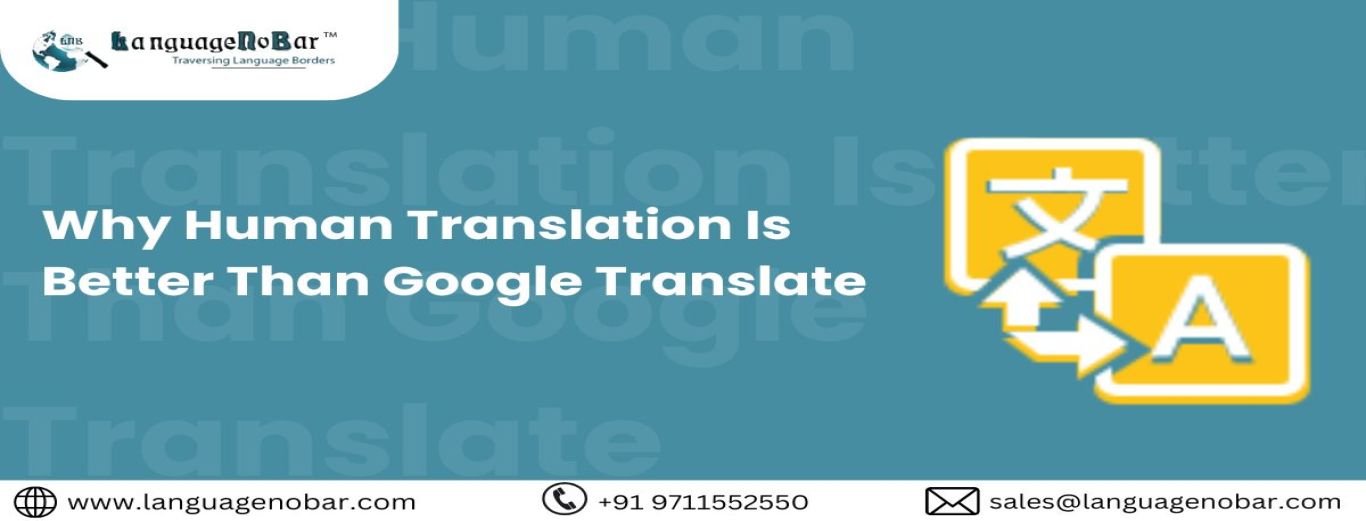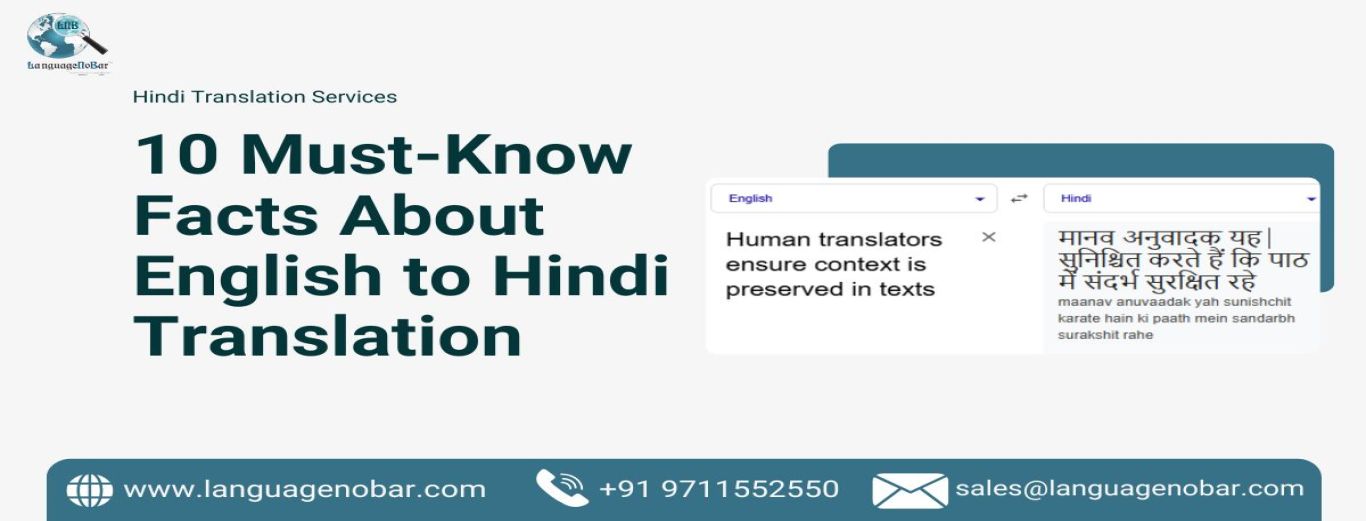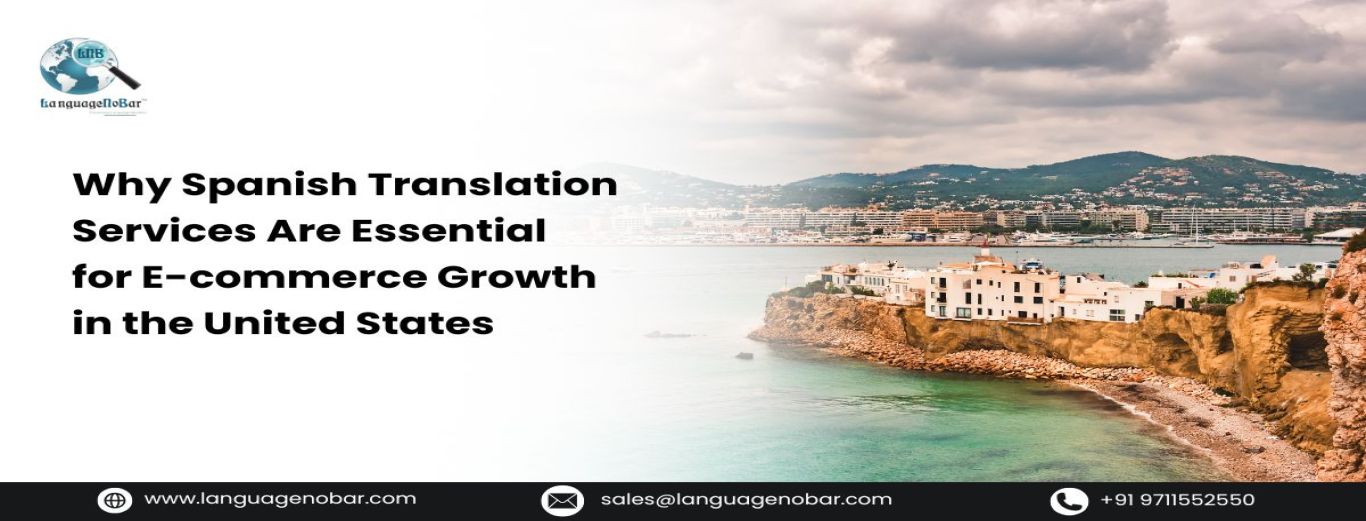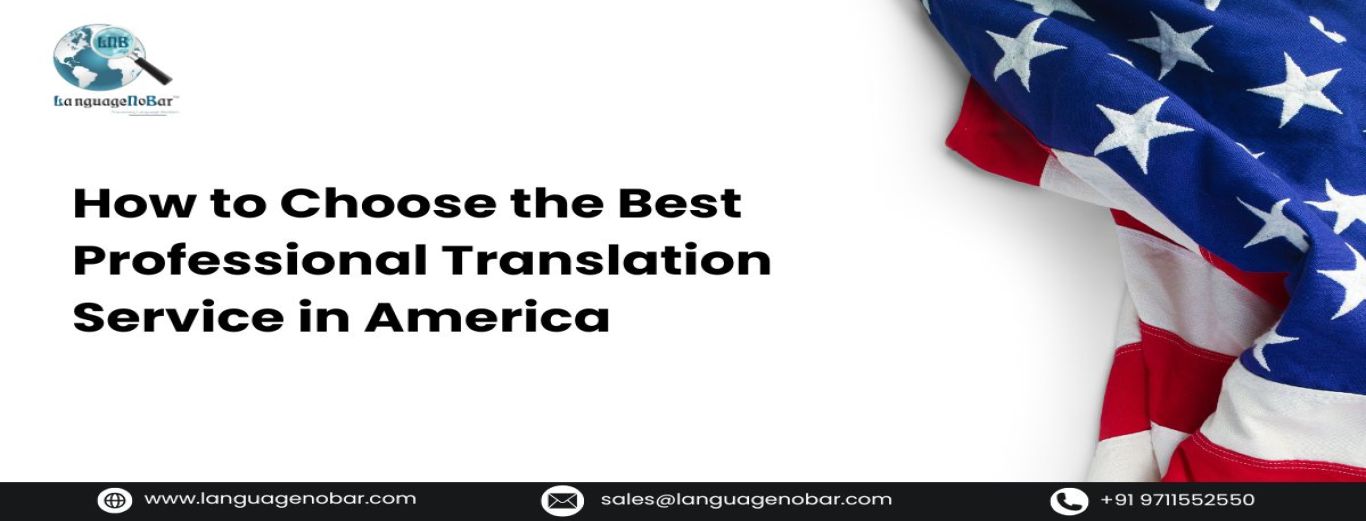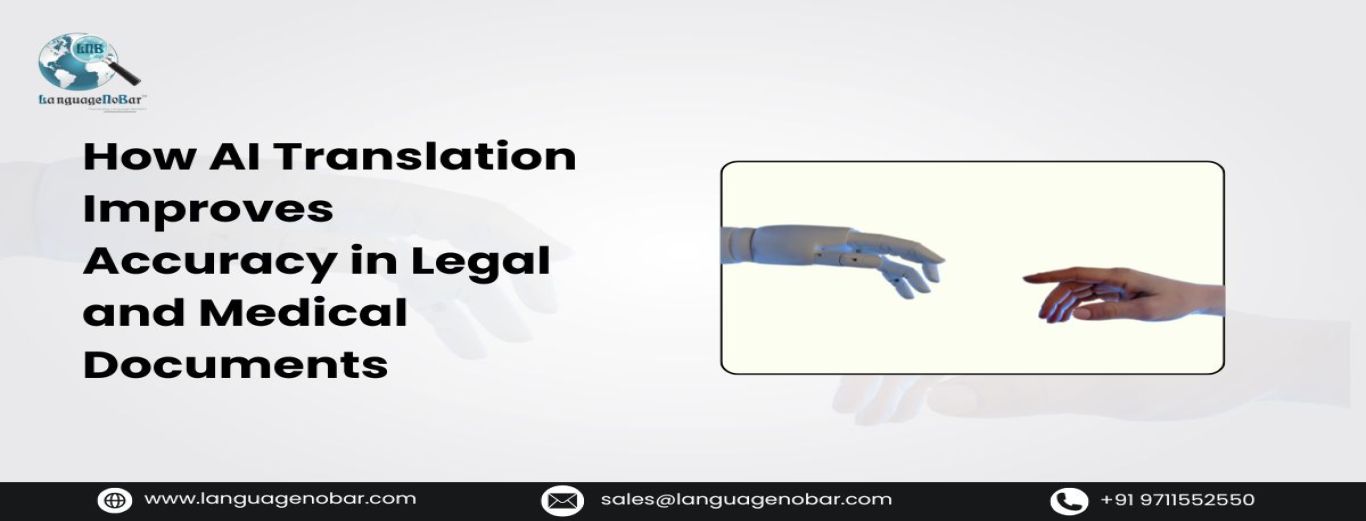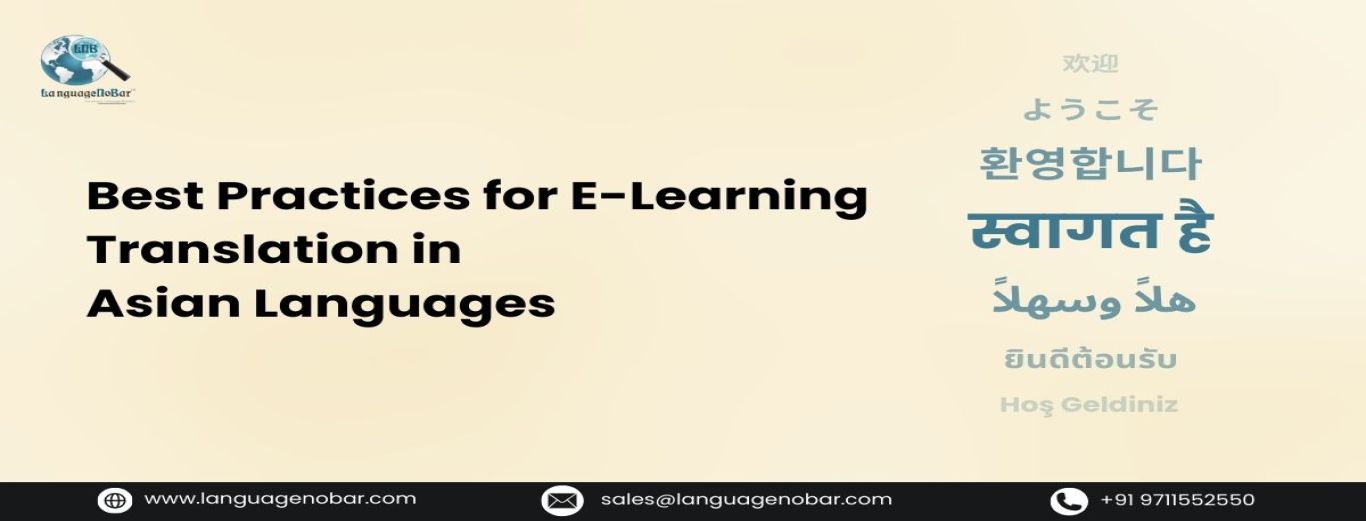Why Human Translation Is Better Than Google Translate
- Blog
- Comments (0)
Why Human Translation Is Better Than Google Translate
Remember when you were traveling to a new place and wanted to bargain with the shopkeeper? You opened Google Translate and typed in the preferred rates, and it worked magically. How come this only works in some places and is not so effective in your official documents? This is because nuanced professional translation services possess several advantages over simplified machine translations.
Word-to-word translation
Google Translate employs techniques to select words and translate them literally. Idioms and phrases are bound to slip through cracks or even be misinterpreted. Saying “This needs to be shelved for now” in English means a temporary halt. But translating literally it to Spanish can mean we can store something for now, which changes the meaning entirely.
Word-to-word translation happens without understanding the context. Using document translation services where the experts have a cultural understanding of the target nation will lead to comprehensive translation using appropriate idioms. There are several instances of machine translators having biases due to not understanding the context as per slator.
ARE YOU LOOKING A TRANSLATION SERVICES FOR YOUR BUSINESS?
SCHEDULE A CALL
Limited language base
Machine translations have expertise only in a limited set of languages. AI model has so far incorporated 1000 languages but their expertise is limited to about 100 languages. Even in these languages, the translation is quite mechanical with no consideration of formatting, space, and context.
They also miss out latest industrial jargon as the main motive of Google Translate is to expand the user base and let people learn and use a language more effectively, rather than easing out professional or business requirements.
Right usage of words
A translator or document translation service has tools like translation memory and glossary to help them choose the right words for the right occasions. Especially in legal documents where the sentences are complicated to seal out any possible loopholes, legal translation services use professionals with expertise in both languages who will pick unambiguous words. There is no guarantee that machine translations will have foreseen any possible legal ambiguity in their translations.
Product or marketing pitches need a thorough understanding of the audience - is it for customers or investors? Are they B2B or B2C? You will need a human translator to take care of the nuances.
Maintaining Consistency
Marketing documents need to keep a definite brand voice and tone across geographies. Machine translations face the biggest hurdle in customizing tone as per the target audience. A translator from a professional translation service will know where to emphasize and where the tone shifts. You will also be working with the same translator or agency across time who will have knowledge of your business so the documents will maintain consistency.
The emotional accuracy of a particular product matters, especially if it is taboo. For example, marketing pregnancy tests across South Asian nations where pre-marital pregnancy is heavily looked down upon needs a more compassionate and secretive tone while in Western nations where it is treated with more liberality can have a different tone.
Creativity and Adaptive thinking
The algorithms are limited when it comes to adaptive thinking. If there is creative or fictional writing peppered with metaphors and analogies, machines may fail to understand the creativity beyond it. You will need a human translator to associate themselves with the emotions to bring out the true essence of what is written.
Machine translations are even more difficult to execute for poetry, catchphrases, or dialogues. Marketing material needs professional translation services to capture the attention of the audience in the target language. The content might feel refurbished and rehashed due to the mechanical word selection, creating a disconnect between the content and the reader.
Authority
Often translations need to be certified by an authority that holds a membership in translator associations or recognised by the government. Google Translations, while useful in a casual setting, lack the authority to approve documents befitting the legal requirements of various nations. Medical and legal translations that have a larger impact on human life, are often restrained with several dictated constraints by respective authorities such as:
Need for double-check
Most machine translations happen in an algorithmic black hole with no clear idea given to user about the process. Professional translation services generally use one translator to do translations which are rechecked by others. Often with generic machine translations, a second level of check is required to see if jargon and phrases are aligned.
This can also lead to several complications as the number of words can go for a toss with each iteration as machines and human translators interpret the same texts entirely differently. Human translators work as a team and will have more touchpoints with you to reduce any misconceptions.
Lack of continuity
Google translation algorithms are constantly evolving. The tone and interpretation of words can shift abruptly when you go back for a second time for the same document. This creates a problem of continuity across documents. For example, in the Terms and Conditions, “Liability is limited to the maximum extent permitted by law" when translated initially to French
"La responsabilité est limitée dans la mesure maximale permise par la loi." which may change to "La responsabilité est limitée au maximum autorisé par la législation." This leads to your core documents having disparities across different iterations.
At LanguageNoBar we cater to a wide variety of topics from legal, medical, and technological in languages spanning across Asia, Europe, and the Americas. The advantage of choosing this professional translation service is that we are an ISO 9001-2008 company where you can ensure a proficient human translator working on your project. The translator assigned will have solid experience in your niche and will understand your context in-depth rather than relying on a literal translation. The continued support for quality translation will ensure uniformity and uniqueness to your content.

